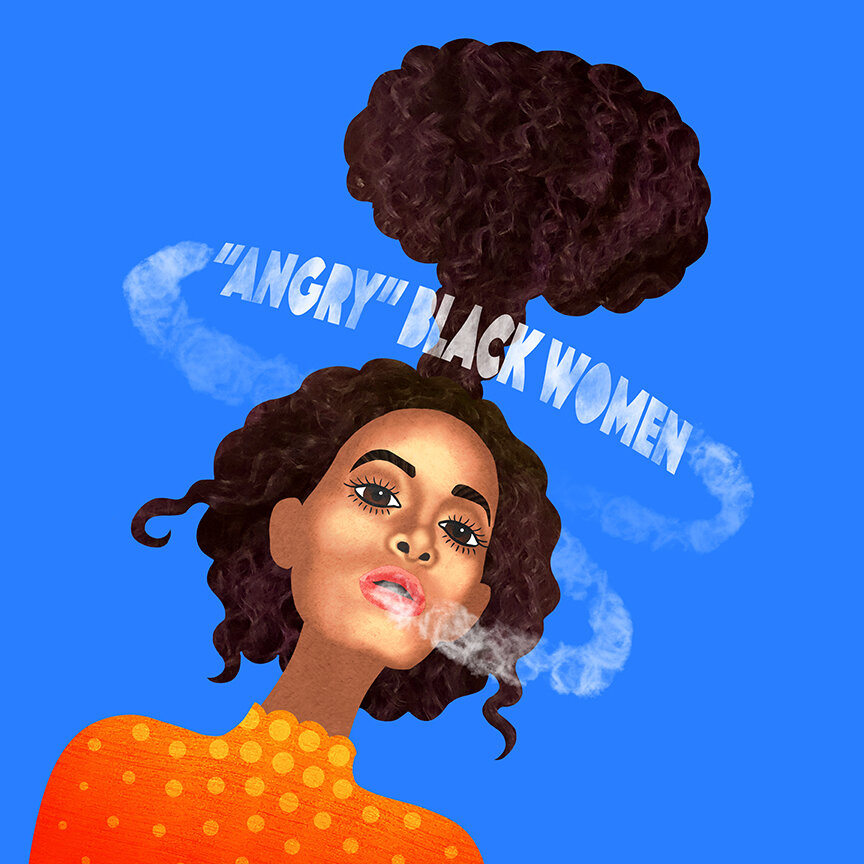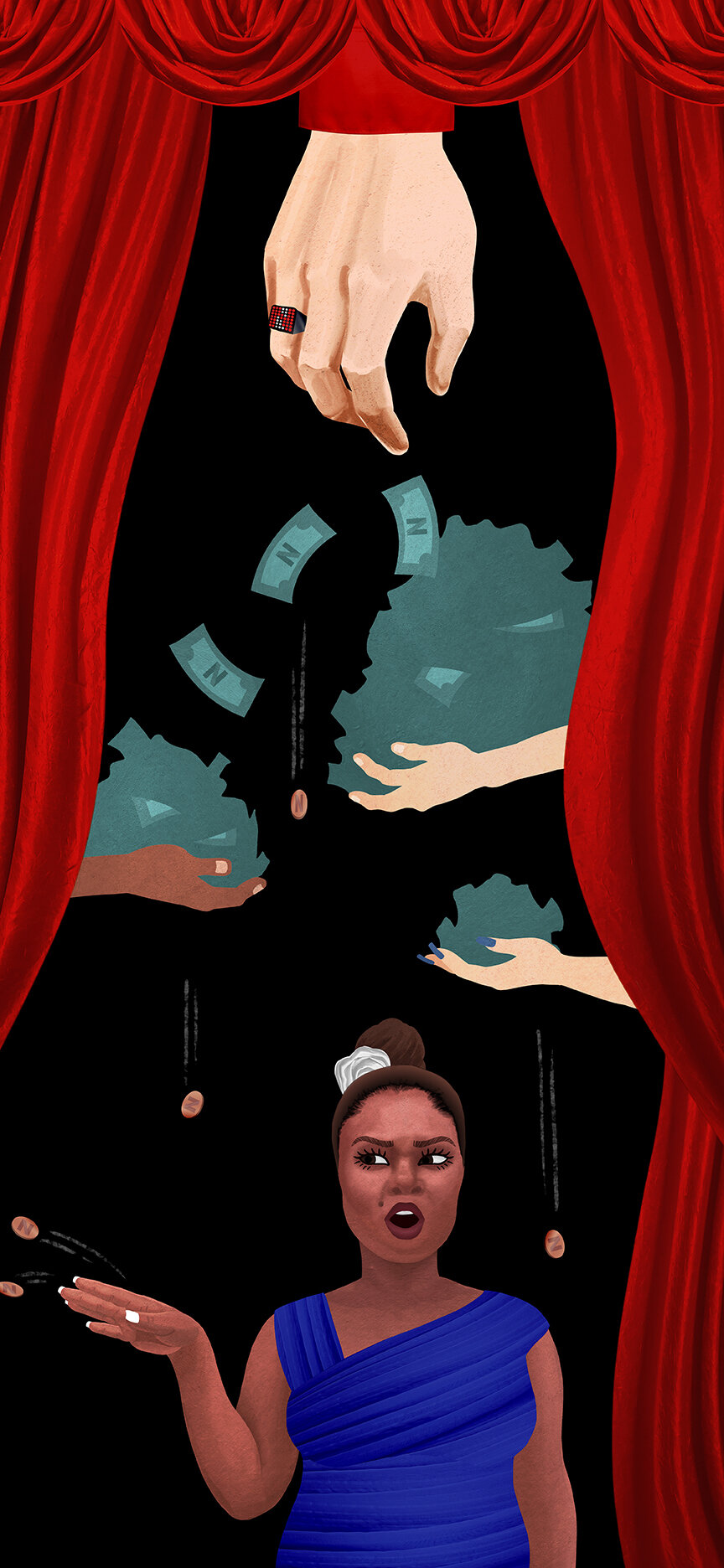“Angry” Black Women
“ANGRY” BLACK WOMEN
by Ene Agi
Illustration Thesis, Bachelor of Design, OCAD University (2020)
Advisor: Jody Hewgill
“Angry” Black Women is a series of editorial illustrations which portrays famous Black women in their recent viral experiences of racialized and gendered discrimination, or misogynoir (a term coined by queer Black feminist Moya Bailey). These images and their stories examine the lens through which our society views and portrays black women, as well as the widespread vilification of our responses to this discrimination throughout the media. Naming the self-ascribed or thoughtfully-inferred emotions of the women in question, “Angry” Black Women seeks to expose that this label and stereotype is deliberately used to discredit Black women’s perspectives and deny the reality of our oppression in order to discourage dissent.
MAD
Labeled after the song “Mad” from Solange’s 2016 album A Seat at the Table, this cover image illustrates that Black women do have reason to be angry, however the intolerance of our anger, and the stereotypes that persist, deny us the human right to express it freely. As sung in the first verse of the song, “[Black women have] the right to be mad,” however we are so tone-policed that we must express any discontent in the most delicate way in order to be heard and considered valid—which Solange managed by deliberately singing her convictions in soft falsetto tones.
DETERMINED
Throughout her career, Serena Williams has had to deal with excessive worldwide criticism and denial of her talents. In 2018, after expressing her mid-game grievances to umpire Carlos Ramos, she was not only heavily penalized and fined, but also depicted in dehumanizing racist cartoons and likened to a child throwing a temper tantrum. While many people publicly agreed with the punishments, masses of social media users noted that several men in tennis have received no punishment for objectively worse behaviour—including some of those very men. Determined addresses the double standards and the barrage of criticism that Black women face in regards to our skills, behaviour, and displays of emotion, as well as our ability to excel despite it.
DISAPPOINTED
In 2017, Lupita Nyong’o made an Instagram post expressing disappointment after her kinky hair was edited out of a magazine cover for Grazia UK. This situation is reminiscent of countless other experiences of digital tampering, restriction, and rejection of Black women’s natural and cultural hairstyles, including cases with Solange Knowles (Evening Standard), Gabrielle Union (America’s Got Talent), and Zendaya (Fashion Police). When these women speak out eloquently about these offenses and their cultural historical significance, they often receive comments that they are overreacting and being needlessly oppositional. Disappointed addresses the dominance of European beauty standards and the erasure of West African features in the media.
UNDERVALUED
In 2018, award-winning veteran comedian and actress, Mo’Nique, called for a Netflix boycott after she was offered $500,000 for a stand up special, compared to Amy Schumer’s $11 million (negotiated up to $13 million), Chris Rock’s $20 million, and Seinfeld’s $100 million. While refusing to negotiate, Netflix failed to explain why a comedian with Mo’Nique’s critical acclaim and experience would be offered 40 times less than the less experienced Schumer. When Mo’Nique filed a discrimination and retaliation lawsuit against Netflix, their attorney Crystal Nix-Hines called Mo’Nique’s “retaliation theory” “nonsensical” in Netflix’s motion to dismiss her claims. Undervalued addresses the practice of grossly undervaluing Black women experts in any field, and acknowledges that racism creates further disparity within “the” gender wage gap.
DIGNIFIED
Dignified illustrates the period of the viral hashtag #OscarsSoWhite (2016), during which Jada Pinkett Smith released a video calling for the boycott of the Academy Awards Ceremony due to its history of dismissing excellent BIPOC actors and filmmakers. Although she expressed that Black people do not need to beg for acknowledgement from a white institution and should instead come together and award themselves, the general reception was that she was simply resentful because her husband, Will Smith, failed to be nominated.





